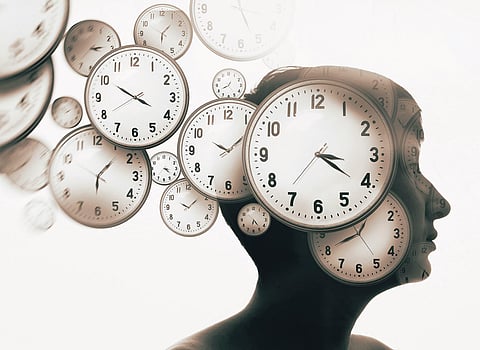Time of death called for the leap second
PARIS: Scientists and government representatives meeting at a conference in France voted on Friday to scrap leap seconds by 2035, the organisation responsible for global timekeeping said.Similar to leap years, leap seconds have been periodically added to clocks over the last half century to make up for the difference between exact atomic time and the Earth’s slower rotation.
While leap seconds pass by unnoticed for most people, they can cause problems for a range of systems that require an exact, uninterrupted flow of time, such as satellite navigation, software, telecommunication, trade and even space travel.
It has caused a headache for the International Bureau of Weights and Measures (BIPM), which is responsible for Coordinated Universal Time (UTC) —the internationally agreed standard by which the world sets its clocks.
A resolution to stop adding leap seconds by 2035 was passed by the BIPM’s 59 member states and other parties at the General Conference on Weights and Measures, which is held roughly every four years at the Versailles Palace west of Paris.
The head of BIPM’s time department, Patrizia Tavella, told AFP that the “historic decision” would allow “a continuous flow of seconds without the discontinuities currently caused by irregular leap seconds”. “The change will be effective by or before 2035,” she said via email.
She said that Russia voted against the resolution, “not on principle”, but because Moscow wanted to push the date it comes into force until 2040.Other countries had called for a quicker timeframe such as 2025 or 2030, so the “best compromise” was 2035, she said.
The United States and France were among the countries leading the way for the change. Tavella emphasised that “the connection between UTC and the rotation of the Earth is not lost”.“Nothing will change” for the public, she added.
Seconds were long measured by astronomers analysing the Earth’s rotation, however the advent of atomic clocks—which use the frequency of atoms as their tick-tock mechanism—ushered in a far more precise era of timekeeping.But Earth’s slightly slower rotation means the two times are out of sync.
To bridge the gap, leap seconds were introduced in 1972, and 27 have been added at irregular intervals since—the last in 2016.Under the proposal, leap seconds will continue to be added as normal for the time being.
Larger than 1 second
By 2035, the difference between atomic and astronomical time will be allowed to grow to a value larger than one second, Judah Levine, a physicist at the US National Institute of Standards and Technology, said

